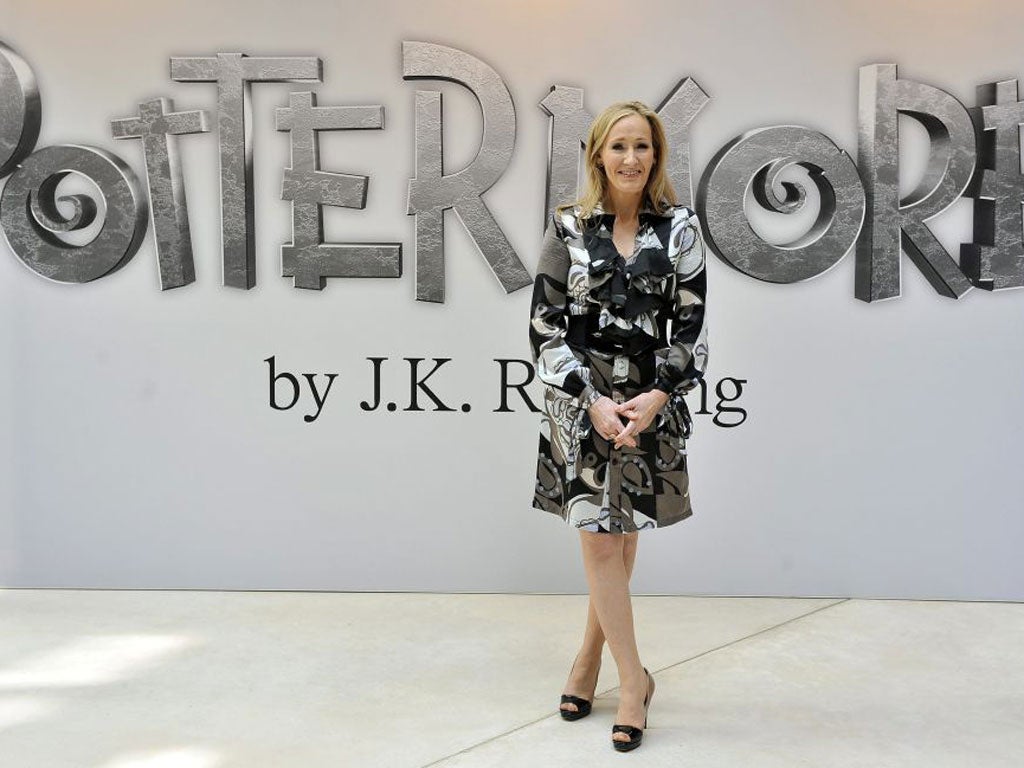The Casual Vacancy, by JK Rowling
The Harry Potter creator's first novel for adults gives us a pleb vs nimby power struggle. A more rigorous edit would have worked wonders

Class has long been a concern of English authors, and it's that familiar itch that JK Rowling scratches in this, her first novel for adults, after selling, you know, a gazillion books about a boy wizard. In many ways The Casual Vacancy is an ambitious and brave book, but it never lives up to its lofty ambitions, and Rowling's bravery doesn't become apparent until the very end.
The action takes place in Pagford, a perfect little village in South-west England, all cobblestones and hanging baskets, and the plot revolves around a struggle within the local parish council over a nearby sink estate called the Fields. Many Pagford residents want rid of any responsibility for the Fields and its inhabitants – lowlife, drug-addicted scroungers, as they see it – by means of a boundary change, but a small faction of liberals see it as their duty to include and assist the Fields' residents.
The book opens with the death of Barry Fairbrother, a liberal Pagford councillor who had pulled himself up by his bootstraps from an impoverished Fields upbringing. That death leaves a "casual vacancy" on the council that the conservative members wish to fill with one of their own, tipping the balance in their favour and finally getting shot of the troublesome plebs down the road.
Into this gentle little potboiler Rowling throws a very large cast of characters, some of them well-defined, others very thinly sketched. Leading the team for the Pagford nimbys is Howard Mollison, a local delicatessen owner and chair of the council, who is trying to shoehorn his son, Miles, into the vacant council seat. At the other end of the political spectrum is Colin Wall, the deputy head of the local school, who sees it as his duty to fight for all that Barry believed in.
In between there is a concerned social worker, a grieving widow, a female Asian doctor, disenchanted wives, victims and perpetrators of domestic abuse, and a handful of teenagers who gradually become more and more important as the plot develops.
At the heart of it all is Krystal Weedon, the 16-year-old daughter of a heroin addict and prostitute from the Fields. Krystal is the beating heart of The Casual Vacancy, the focus for Rowling's moral concerns and arguments. How much is her bad behaviour down to her circumstances, how much is it personal responsibility? How much does society owe someone like Krystal?
In fact, Krystal's behaviour isn't that bad at all, so Rowling rather dodges her own questions. Krystal has the most inherent integrity of anyone in the novel, so of course she should be saved. This really strikes at the heart of the problem with The Casual Vacancy. The author treats Pagford and the Fields differently when she writes. The snobbishness and hypocrisy of the Pagford residents is held up for mild satire throughout, while the deprivation of the Fields is played with a straight bat, and that unevenness of tone rankles.
Actually, both approaches are delivered in a tame and boring fashion. Much has been made of the adult content of The Casual Vacancy – violence, sex, drug abuse, bullying, rape – but it's all rather pallid, frankly.
And the same goes for the satirical swipes, Rowling continually pulls her punches on her well-to-do targets. As the book reaches its final stages, she drops this angle altogether and things pick up remarkably.
I thought the final 100 pages were terrific, it's just a shame that Rowling took such a long, laborious route to get there. The book is in need of a serious edit, especially in the opening 200 pages, but pity the poor editor who has to take a red pen to the manuscript of someone who has sold 450 million books. Time and again Rowling tells rather than shows, that old chestnut of creative writing classes, and for someone usually so adept at plotting, the gears of the council election don't get going until far too late.
And the prose is often clunky and clumsy. I lost count of the number of mismatched or garish metaphors and similes. On the second page Barry's aneurysm "sliced through his brain like a demolition ball". I'm pretty sure demolition balls don't slice. Later we encounter the likes of "he said pedagogically" and "he enquired knowledgeably". Really?
Also, it's strange that we don't hear much from Krystal's point of view, given that she's at the epicentre of the action. Maybe that's intentional on Rowling's part, another level of "casual vacancy" at the heart of the book. But, if so, I didn't feel it worked, instead it led to a slight air of condescension, presumably the last thing the author intended.
Like I said earlier, this is an ambitious and brave book. I just wish it were a better book.
Join our commenting forum
Join thought-provoking conversations, follow other Independent readers and see their replies
Comments
Bookmark popover
Removed from bookmarks